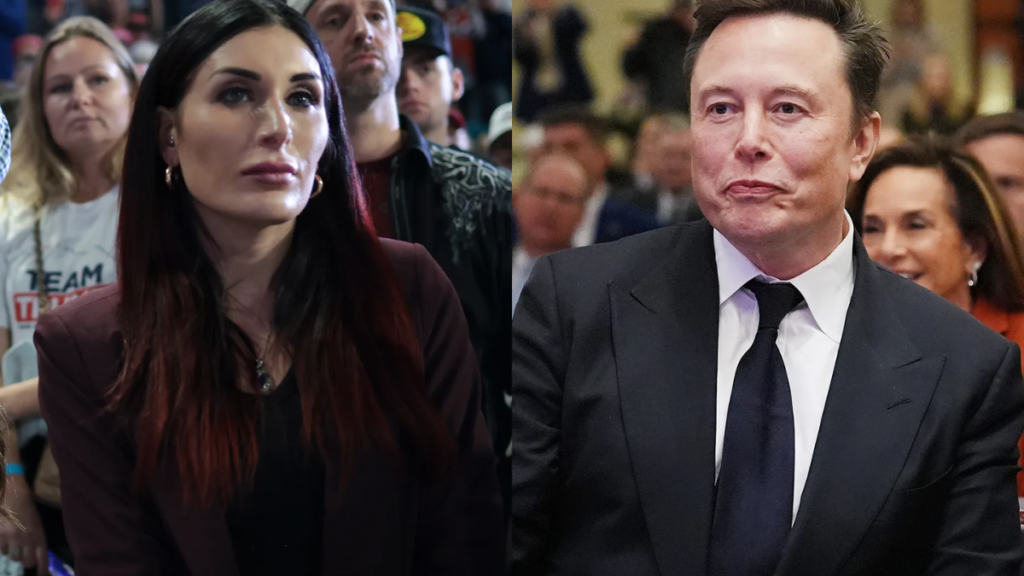Prominent far-right activist Laura Loomer and several other conservative voices have recently alleged that their engagement on X (formerly Twitter) has significantly decreased — and they believe the cause is clear:
criticizing Elon Musk. Once hailed as a free speech champion by right-wing commentators, Musk is now facing backlash from some of the very figures who once praised his acquisition of the platform.
Loomer, known for her controversial commentary and past congressional runs, has taken to X to voice her suspicion that Musk or his team may be suppressing her reach in response to her recent posts criticizing the billionaire’s leadership and content moderation decisions.
Other far-right personalities, including Stew Peters and activists affiliated with “Stop the Steal” movements, have echoed similar concerns about algorithmic throttling.
The Turning Point — When Praise Turned to Criticism
In 2022, Musk’s purchase of Twitter was met with excitement among conservative users, many of whom had been banned under the platform’s prior leadership. Musk reinstated several controversial accounts and repeatedly declared his commitment to “free speech absolutism.”
However, recent moves — including the enforcement of community guidelines, fact-checking posts, and banning certain high-profile accounts — have drawn criticism from his former allies.
Loomer, who once celebrated Musk as a “savior of free speech,” began to shift her tone in early 2025 after Musk publicly rejected conspiratorial claims and imposed limits on what could be shared about immigration and election fraud. She accused him of becoming just like his predecessors and claimed that her posts were no longer reaching her typical audience.
“It’s clear I’ve been shadowbanned,” Loomer wrote in a recent thread. “My engagement has tanked ever since I exposed the truth about Musk’s ties to globalist organizations.”
Allegations of Shadowbanning and Algorithmic Throttling
“Shadowbanning” refers to the practice of quietly limiting a user’s visibility or reach on a platform without formally banning them. While Elon Musk has denied using the practice under his leadership, critics argue that algorithmic tools may still be used to reduce the amplification of posts that target the platform’s owner.
Some users have shared screenshots showing a sharp decline in impressions, likes, and shares shortly after posting critical content about Musk. Independent analysts who track social media engagement trends note that algorithmic changes or content labeling features may contribute to perceived suppression, especially if posts are flagged as misinformation or harmful content.
While no official statement has been issued by X regarding Loomer’s engagement, the platform’s trust and safety policies do allow for reduced visibility of content deemed misleading or inflammatory, regardless of political affiliation.
Free Speech or Selective Moderation?
The controversy has reignited the long-standing debate over whether social media platforms can truly be neutral when owned by high-profile, politically outspoken individuals. Musk, who has embraced both left-leaning and right-leaning policies depending on the context, now finds himself caught in the crossfire of his own free speech experiment.
Critics argue that X is selectively enforcing rules when it comes to attacks on Musk himself. Supporters of Loomer claim that by throttling dissenters, Musk is undermining the very principles he claimed to uphold. Meanwhile, others say that moderation is a necessary function to curb the spread of extremism and harassment, regardless of who is being criticized.

Broader Implications for Political Discourse Online
This clash between Musk and right-wing influencers may signal a broader realignment of political alliances in the digital age. As platforms become more centralized under influential owners, the tension between content moderation and freedom of speech continues to shape online discourse.
For far-right figures like Laura Loomer, the perceived loss of a reliable platform for amplification could limit their digital reach heading into the 2024 election season. With YouTube, Facebook, and Instagram maintaining strict guidelines on misinformation, X was seen as a final stronghold for their message.
Now, some are exploring alternatives like Truth Social, Rumble, or decentralized platforms to avoid what they see as tech censorship. But without the massive reach of X, their influence may face limitations.
Final Thoughts
The decline in engagement for Laura Loomer and other far-right influencers on X underscores the complexities of running a global platform while promoting free speech. Elon Musk’s efforts to balance platform safety with openness have led to a fractured relationship with key user groups, some of whom were once his most loyal supporters.
Whether this trend is the result of algorithmic moderation or a reflection of changing user behavior, the impact is being felt across political lines. As social media continues to be a battleground for political influence, questions remain about who gets to speak—and who gets heard—in the Musk era of X.
For a deeper dive into how social media platforms handle algorithmic visibility, check out this report by Wired.
Disclaimer – Our team has carefully fact-checked this article to make sure it’s accurate and free from any misinformation. We’re dedicated to keeping our content honest and reliable for our readers.








